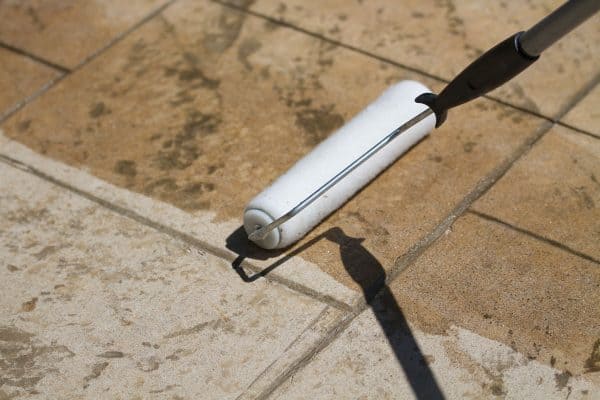Disclosure: We may get commissions for purchases made through links in this post.
Now that you have a swimming pool in your backyard, you're thinking about how you could make it safe for your family. You might be planning on installing pool pavers, yet you have no idea how thick they should be. Keep your worries away! We've researched the answers for you.
The reasonable thickness of pool pavers should range from 1.25 inches to 2.5 inches. This thickness is considered safe for daily use. Too thin pavers can break quicker, while too thick can be quite hard to seal. However, you should not go thinner than an inch or thicker than three inches.
When installing pool pavers, there are a lot of things to consider. A clear assessment of your pool can tell you what type of paver will be perfect. We're here to share with you all you need to know about pool pavers. Just keep reading!
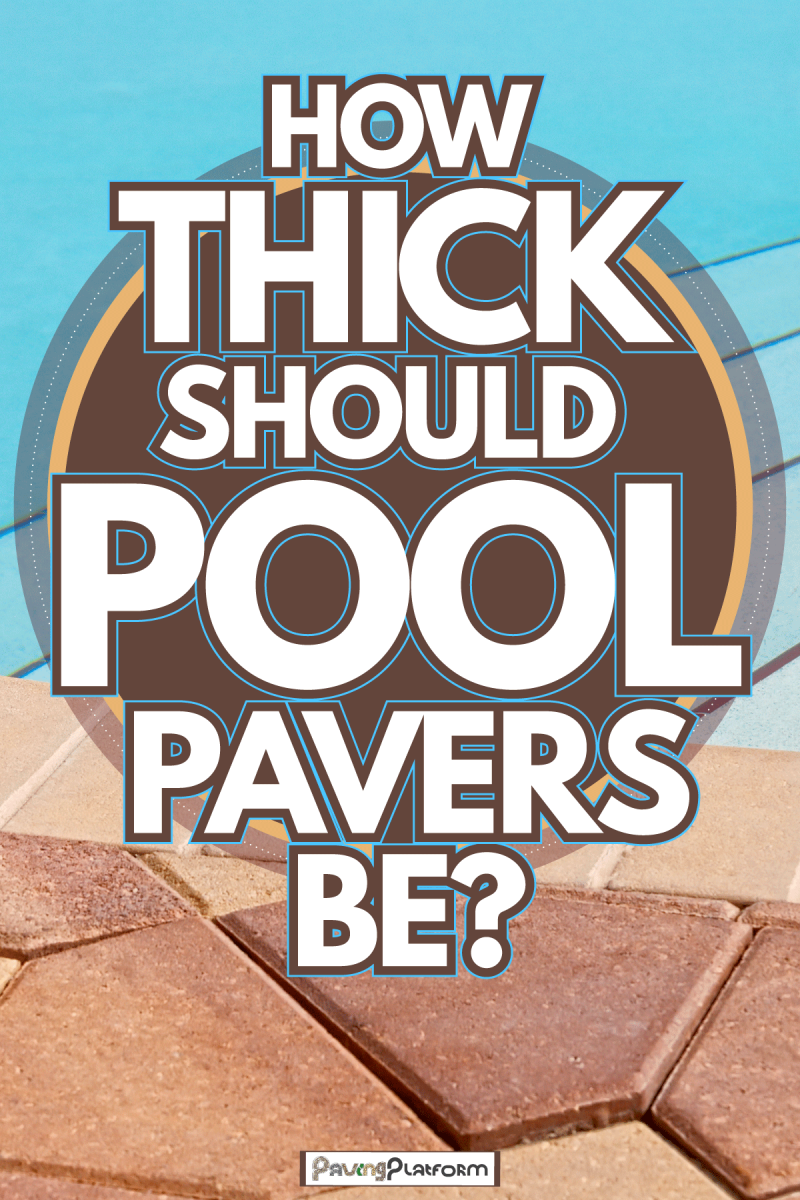
Why Install Pavers Around The Pool?
Pavers around your pool can serve as a long-term investment. Consider these benefits to give you more ideas about pool pavers.
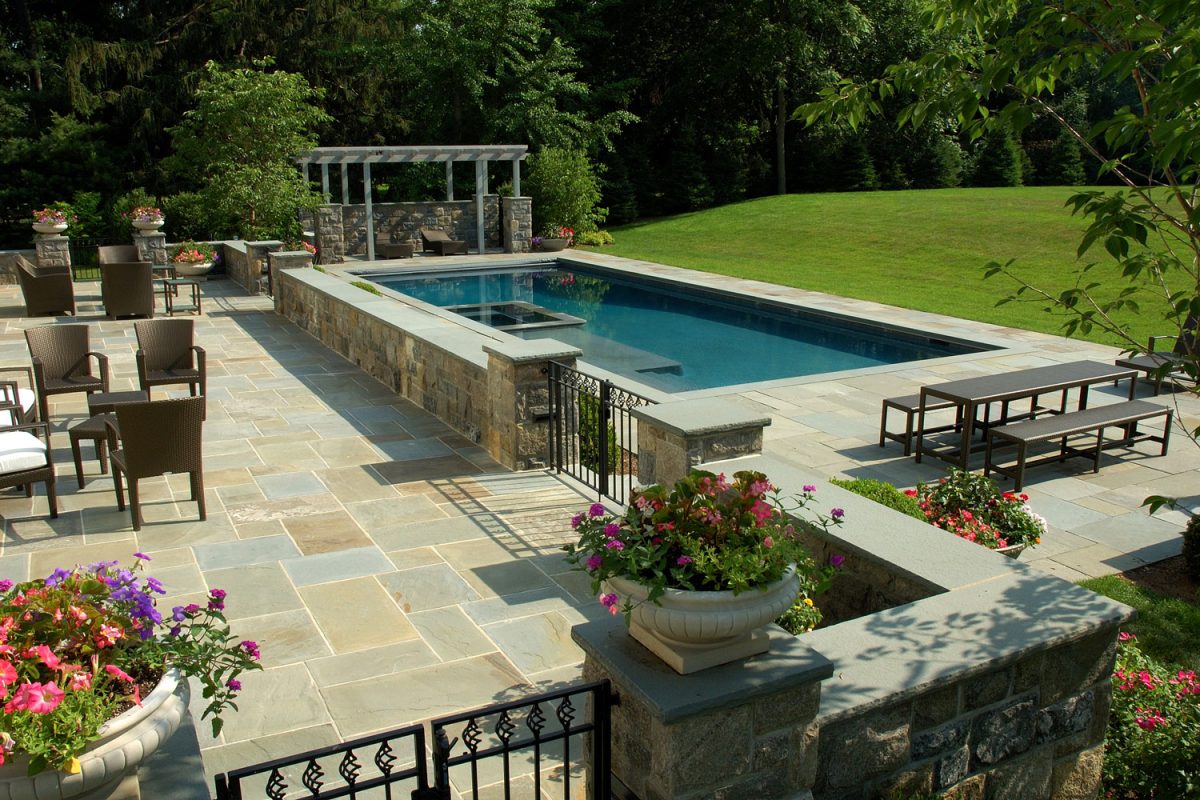
For Safety
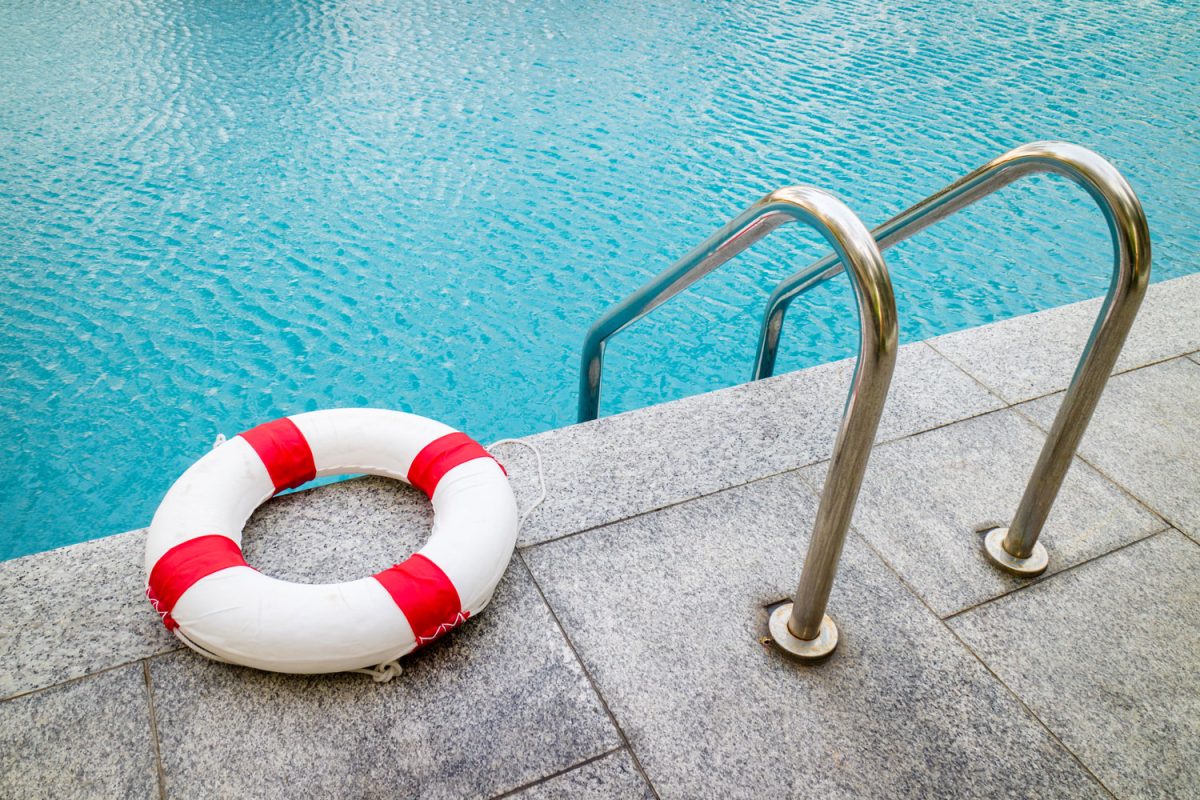
Installing pavers makes your family safer around the pool. Generally, pavers are made to keep the soil dry and intact, which prevents erosion throughout the area. Pavers can block sunlight from sustaining nutrients in the soil, making it impossible for plants to grow.
Low-Maintenance
Pool pavers require minimal maintenance and are easier to install compared to other materials. Through this, you can cut costs yet maximize their efficiency.
Durability
Pool pavers do not break under sudden forces. These can withstand pressure, heat, and moisture. Securing the paver joints increases stability against external movements. Additionally, pool pavers can resist fading caused by chlorine and stains.
Suits Your Style
With a wide variety of colors and designs, pool pavers can suit your style. Some manufacturers sell colored pavers so that you don't have to paint them. But later in this article, we'll tackle more about painting pool pavers and how it helps in sealing.
Common Types Of Pool Pavers
Pavers differ in texture, composition, and strength. Some can be expensive and limited, while others are available anywhere. For more details, see these common types of pavers.
Concrete
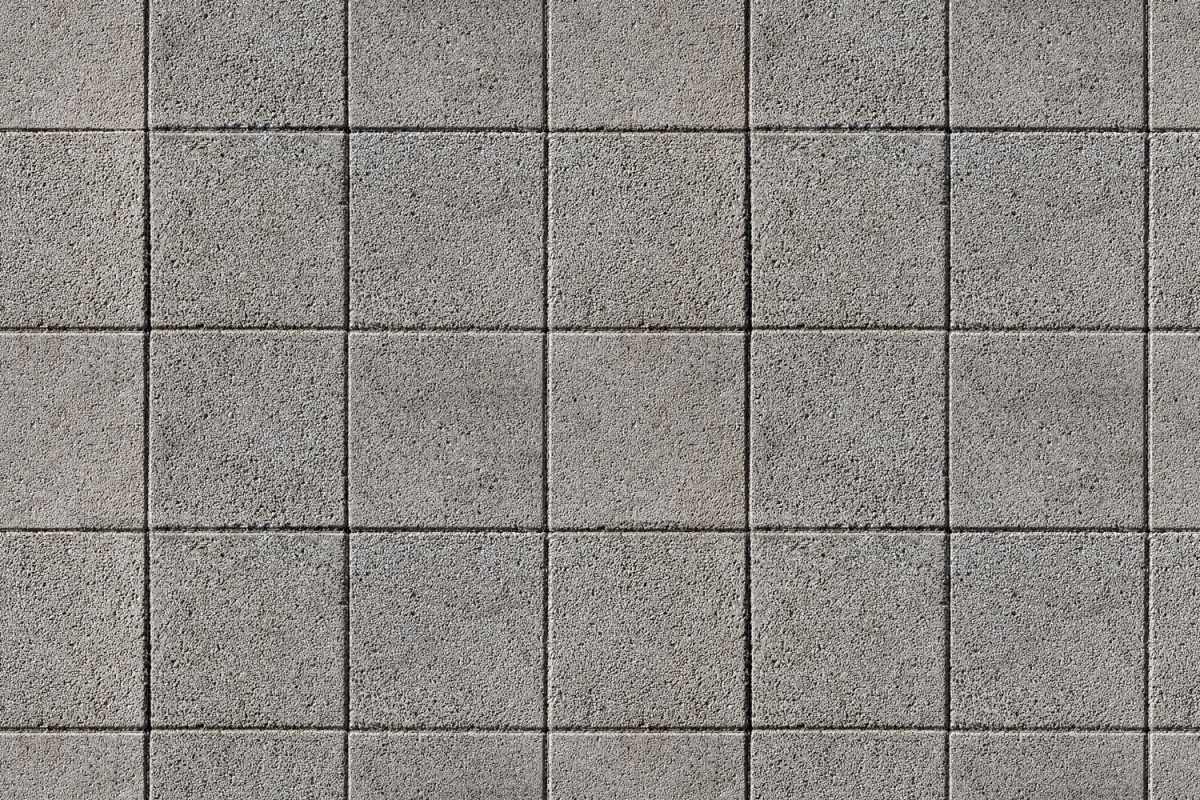
It's the most common type of paver, which is typically made from sand, gravel, and crushed stones. Concrete pavers are cheap yet can guarantee your safety. Unlike other natural stone pavers, concrete is manmade and widely manufactured.
Bluestone
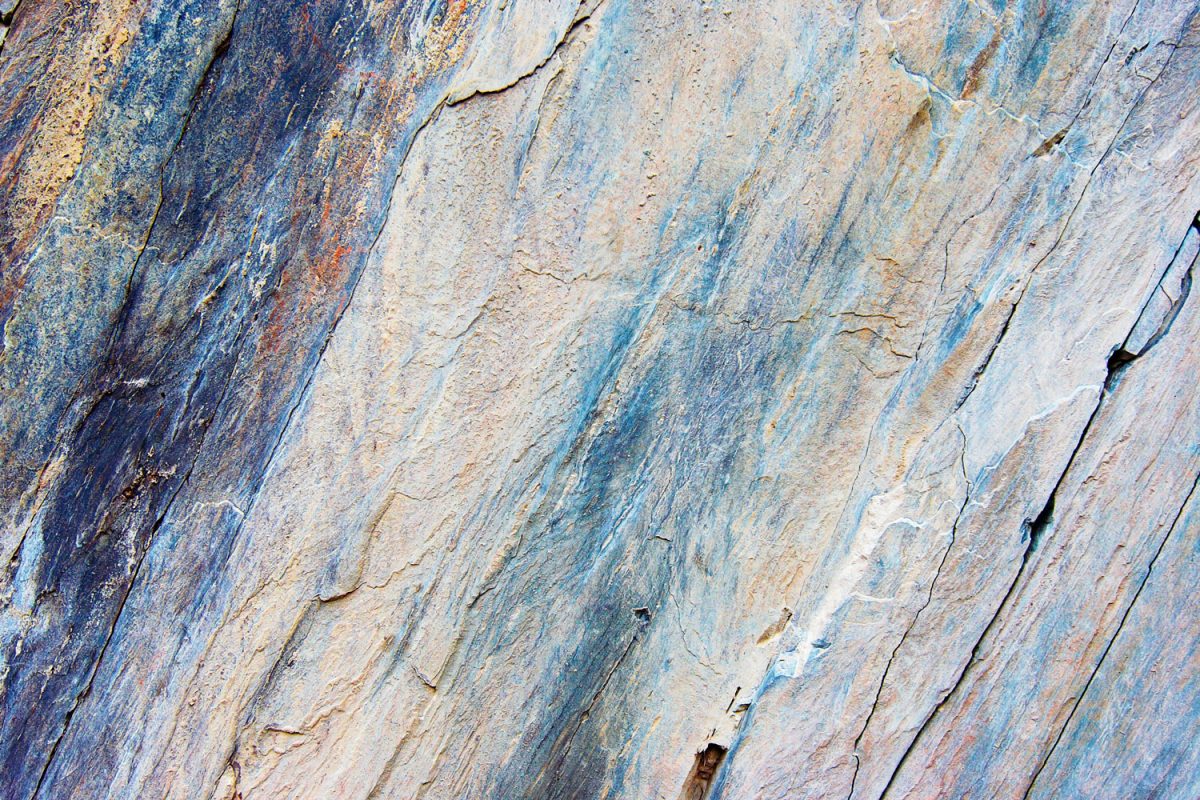
Bluestone pavers are a type of sedimentary rock that can be found in bodies of water. These are durable and can last for up to 40 years or longer due to their high mineral content. Bluestone is expensive because it's not always available.
Porcelain
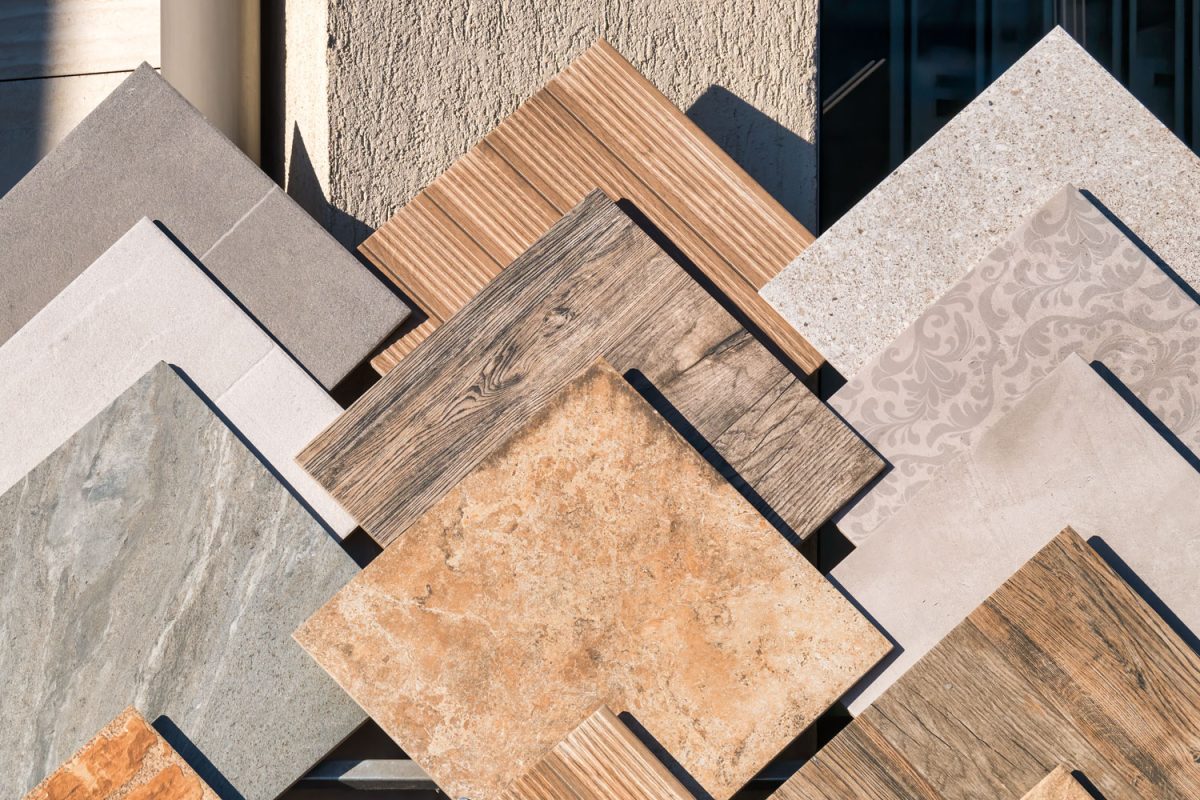
Porcelain pavers are made of clay heated up to a thousand degrees, resulting in a rough texture. These are resistant to heat, moisture, common stains, and heavy impact. Porcelain pavers are quite expensive, yet they can lead to less maintenance since they can dry up quickly. Although porcelain pavers are typically non-slippery, there are a few variables that can make them so.
Travertine
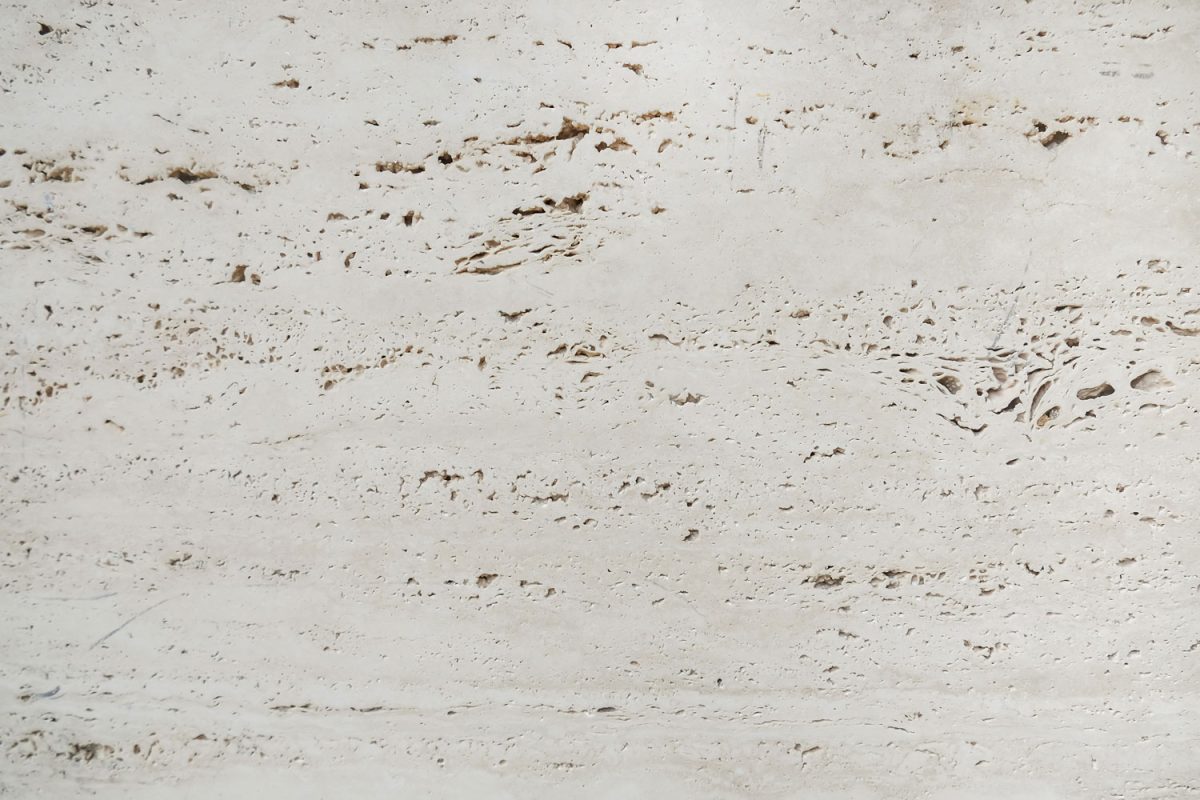
Travertine is a variety of limestone. It's rich in calcium, giving it a high friction level. Travertine pavers are quite porous, which means pores are present on their surface, causing airflow and water absorption. However, you may seal travertine pavers for maximum durability.
Granite
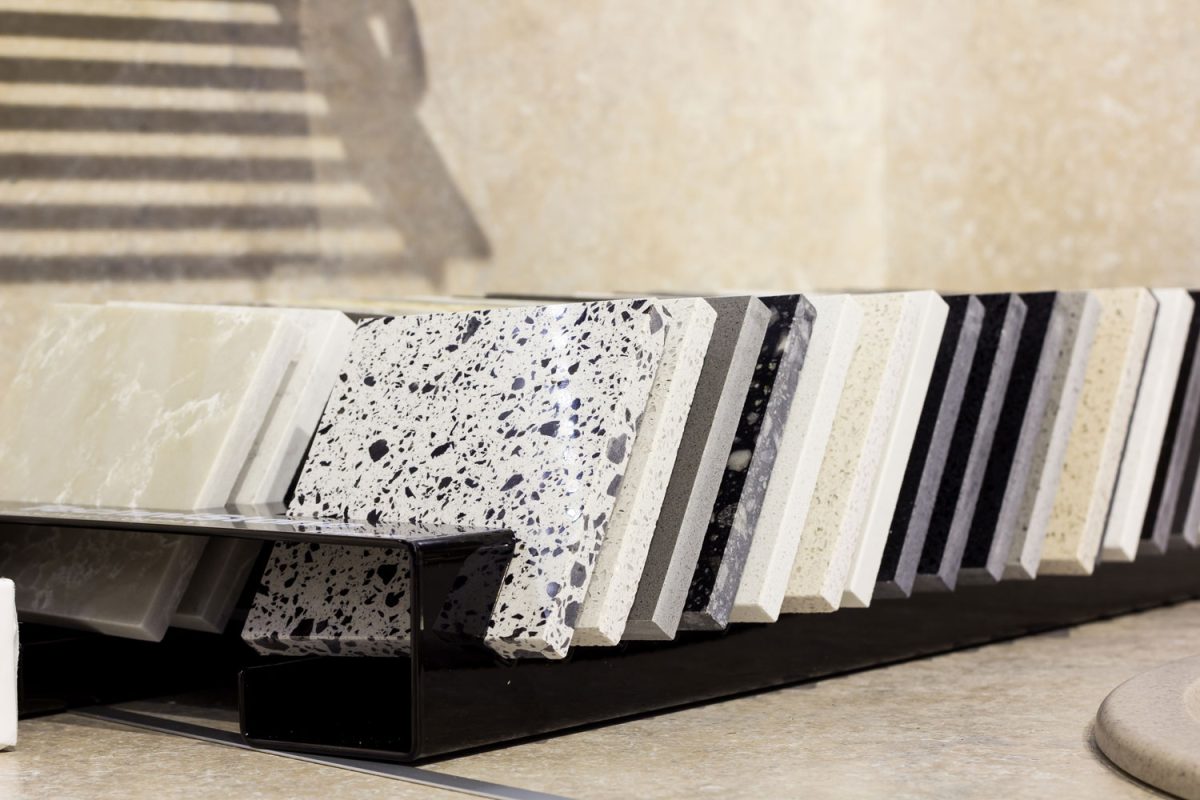
Granite comes from hardened magma. It has the ability to heat up the surface, which is good for the winter and rainy seasons. Pure granite is very expensive, but it is extremely strong against impact. However, installing granite pavers is a wise choice for your home.
Pool Pavers: Installation And Sealing
Normally, the installation of pool pavers comes after the pool's construction. This can determine the thickness of the pavers more accurately. Seek an expert to help you assess the area before the installation. However, see these steps:
- Dig around the pool. For accurate layering, leave at least 0.25 inches of space for the gravel.
- Remove the obstacles and spread the gravel evenly. You may use a soil compactor for a flatter surface.
- Start by laying pavers around the perimeter of the pool. Even if the pool has curves, surround the edges in a rectangular shape.
- Pin the pavers tightly using a hammer. To keep the pavers intact, cut the excess.
- Fill the joints by sweeping sand throughout the area. Gently spill water to harden the sand, then let it dry.
See this polymeric sand on Amazon.
It's optional to apply sealant, but it can save the pavers from stains and fading. However, you may use an acrylic sealant for waterproofing. Follow these steps:
- If you want to seal the pavers, you should not skip filling the joints with sand to avoid wasting sealant.
- Use a sprayer to spread the sealant. Let it set until dry.
- Clean the pavers with water and soap to eliminate the odor.
Remember to wear a mask for safe inhalation. You might need different sealants depending on the type of paver installed. Ask the manufacturer about the appropriate sealant for the specific paver type.
How Long Do Pool Pavers Last?
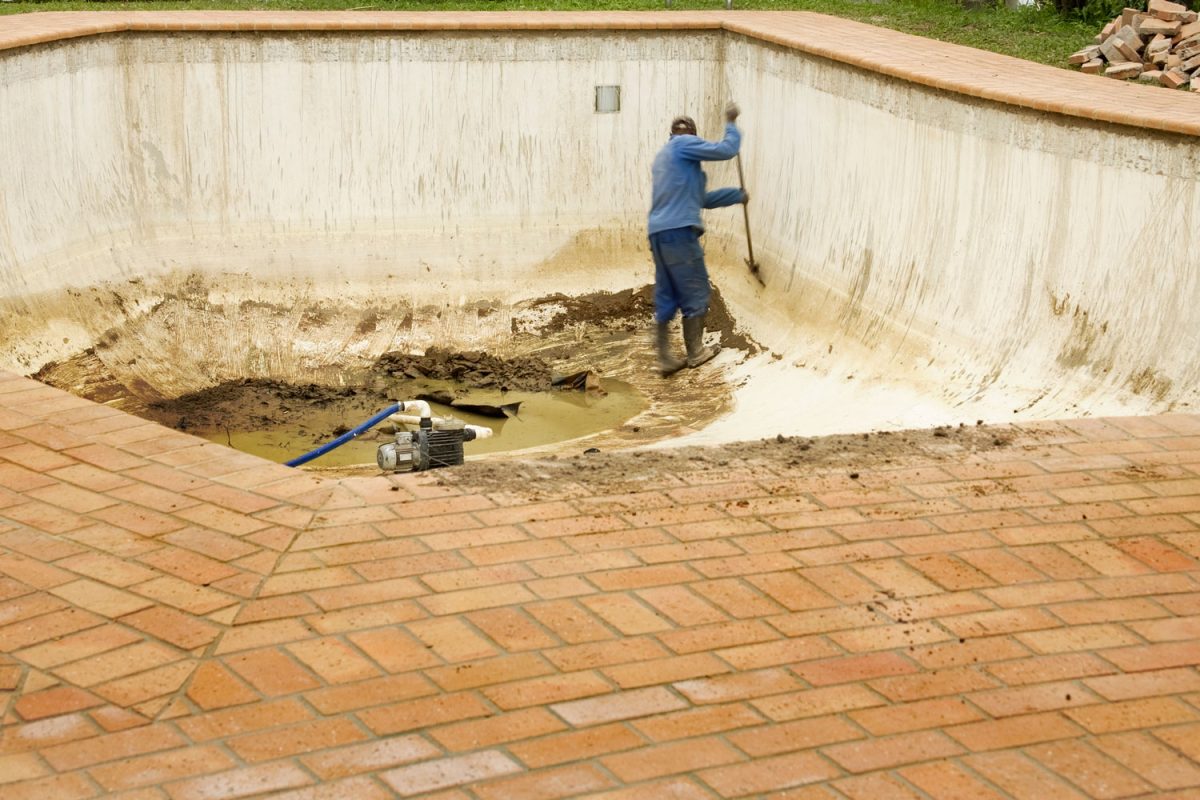
Usually, pool pavers can last from 40 to 65 years, provided you properly follow the steps. If you did not apply sealants, weeds may grow, which will shorten the pavers' lifespan. Fix minor issues to prolong efficiency.
Can Pavers Be Used On Pool's Floor?
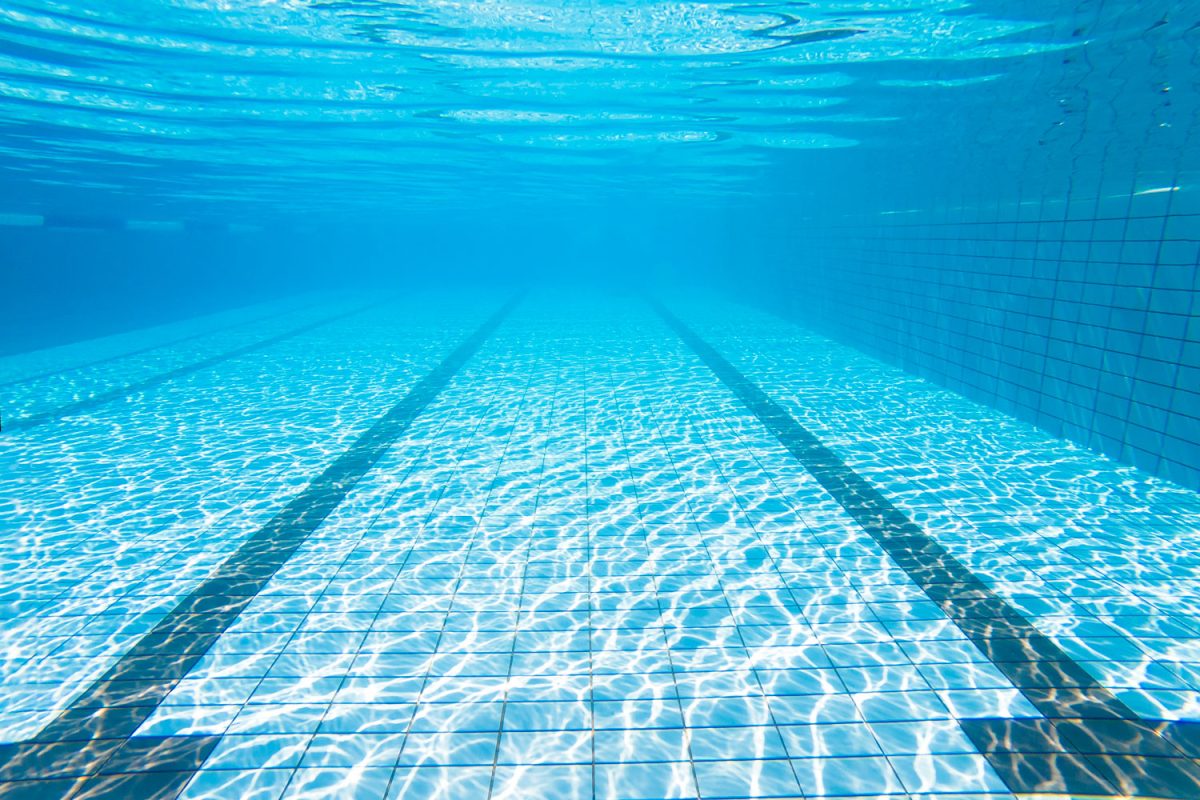
Pavers can, in fact, be used on the pool's floor. Many home builders recommend them instead of plain concrete. This is to ensure maximum safety, as water pressure and weight can cause cracks in the concrete floor. You can choose from ceramic, marble, or porcelain. Before laying pavers, it's critical to understand their size, material, texture, and durability. Let the experts evaluate them for you. However, you may repair the damage with a pool patch.
See this pool patch on Amazon.
Keeping Pool Pavers Rough, Dry, And Clean
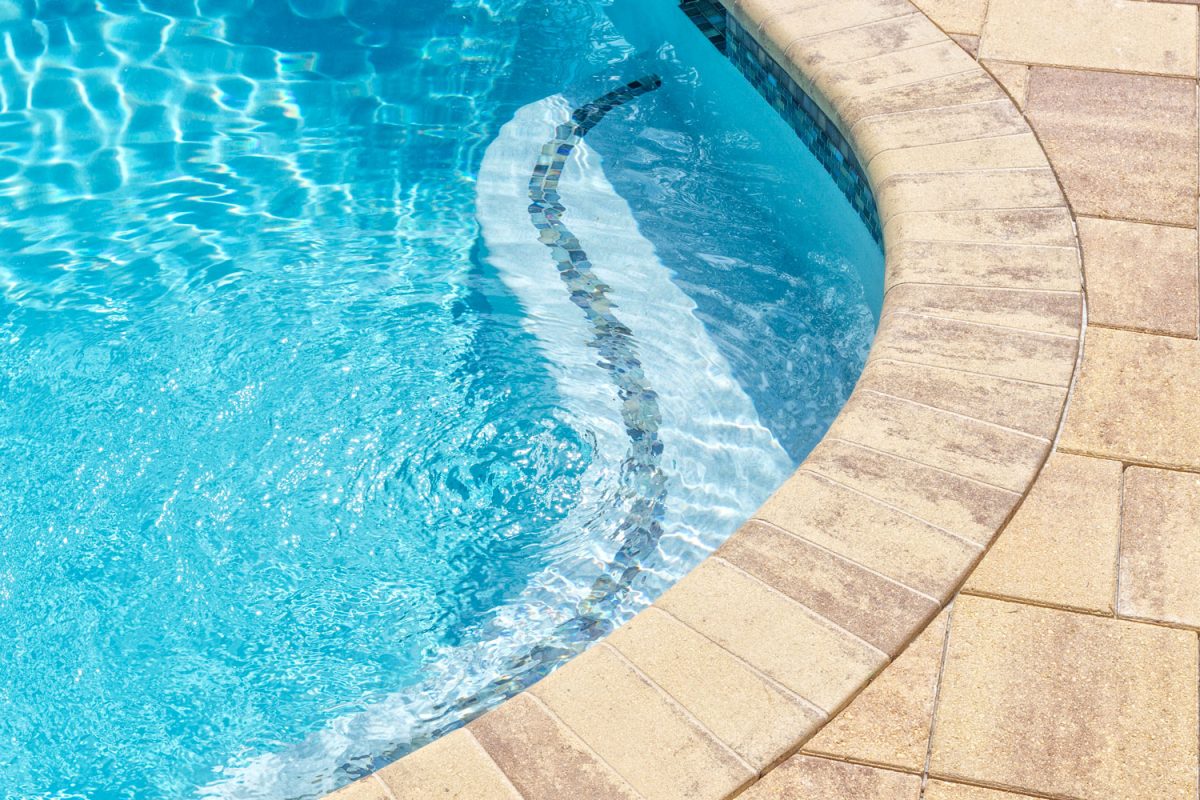
The pool's surroundings are normally wet. So, to keep your family safe from slipping, you may consider these tips:
- Seal the pavers to restrict algae or any sprouts from growing.
- Reapply sand if the joints seem to get wider. It helps roughen and dry the tire surface.
- Do not bring soaps, shampoos, or lotions near the pool. You may not notice it, but frequent spillage of these materials can slowly alter the pavers' texture.
- You may use a rubber mat to increase friction.
See this rubber mat on Amazon.
To keep the pool pavers clean, follow these steps:
- Wet the pavers with water. Wear gloves and prepare the cleaning solution.
- Spread cleaning soap throughout the pavers. You may require other solutions depending on the stain. See the product's instructions.
- Scrub the pavers to eliminate dirt.
- Spill water again, then let the pavers dry.
You may pressure-wash the pavers for quicker cleaning. Clean the pavers daily by dry sweeping, but do a major cleaning at least twice a month.
Why Water Keeps Coming Out Between Pavers?
This is a very serious situation that you should not ignore. There might be unnoticed issues during the installation of pavers or the construction of the pool itself. You need experts to solve these issues and keep swimming safely. Refer to the list below of the possible causes and solutions:
- The pool's drainage system, or the common drainage shared with neighbors, might be damaged. Assess the situation and tell the experts what you find out.
- You did not apply gravel or sand before installing the pavers. The bedding is important to prevent moisture from accumulating.
- You did not seal the joints. If you leave them open, water may stay in place.
- The soil is sinking. It's critical to evaluate the ground to trace where the fault comes from.
- If fixing the issues yourself does not do any good, consider asking for a professional's assistance.
If fixing it yourself does not do any good, consider asking for a professional's assistance.
Do You Need A Vapor Barrier For Pool?
A vapor barrier is used to protect the area from water condensation. It blocks moisture from penetrating the walls and keeps the area dry. However, you don't need it if the pool is outdoors. A vapor barrier traps moisture if there's no space for it to escape the area. On the other hand, an indoor pool might need a vapor barrier.
Conclusion
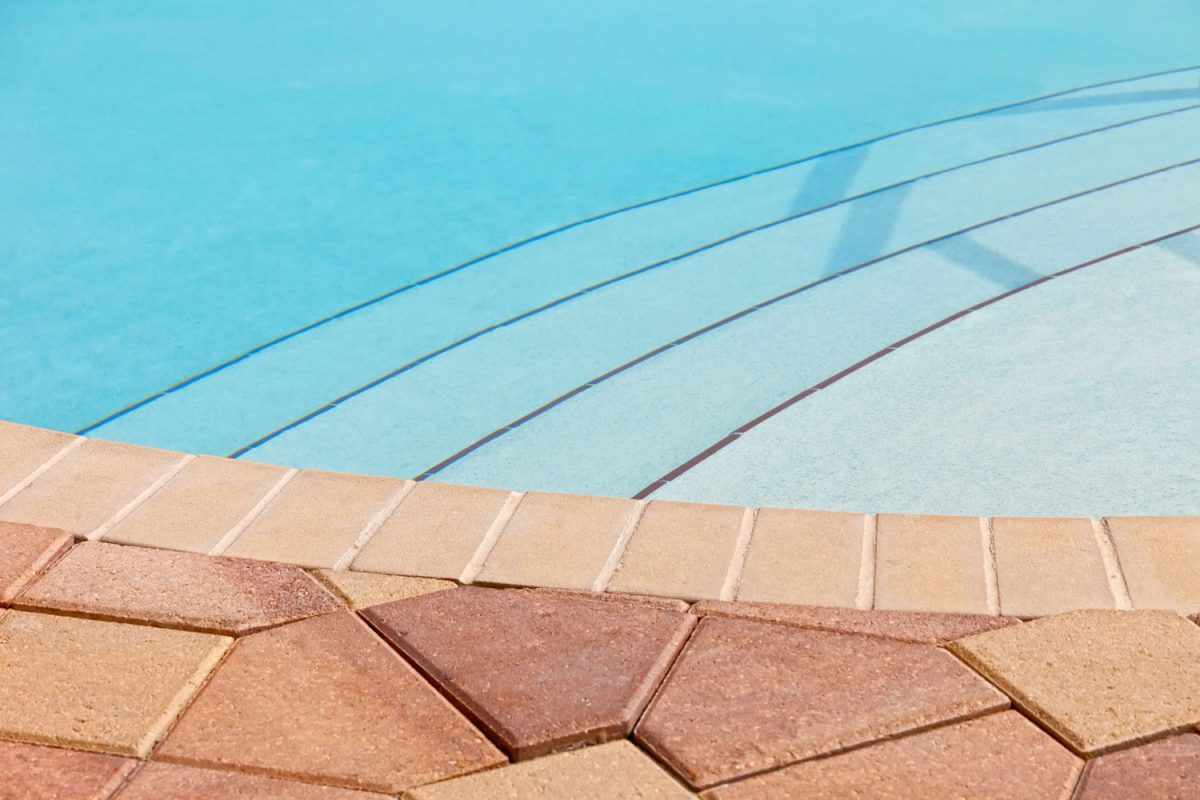
The size, texture, and thickness of pavers differ. You just need to find the right property for your pool. Consider the things we've shared with you to enjoy swimming safely.
If you want to learn more, check out these articles:
Choosing Natural Stone Pavers: Bluestone Vs. Flagstone Vs. Slate





![Vibrant Red Paver Stone Path, Can You Spray Paver Sealer? [How To Apply It]](https://pavingplatform.com/wp-content/uploads/2022/04/Vibrant-Red-Paver-Stone-Path-600x400.jpg)
![Properly laid out red pavers for a garden, Can You Tint Paver Sealer? [And How To]](https://pavingplatform.com/wp-content/uploads/2022/04/Properly-laid-out-red-pavers-for-a-garden-600x400.jpg)
